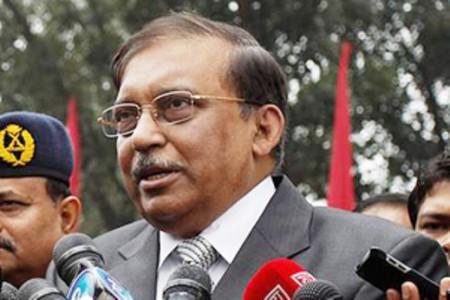Islamabad, August 5 (NIA): Hopes that the SAARC Home Ministers’ conference held here on August 3 and 4 would enable India, Pakistan and Bangladesh to jointly fight terrorism, were dashed when the Bangladeshi Home Minister opted out of the conference in protest against Pakistan’s alleged role in fomenting Islamic terrorism in his country, and the Indian and Pakistani Home ministers clashed at the conference over the vexed issue of Kashmir.
Bangladeshi Home Minister Asaduzzaman Khan decided not to attend the Islamabad conference in the backdrop of Dhaka’s charge that the Pakistan High Commission in Bangladesh is liaising with extremist Islamic groups in the country to foster terrorist strikes in retaliation against the government’s bid to punish pro-Pakistan Islamic groups which had opposed the 1971 war for separation from Pakistan. In the past year, Bangladesh had expelled two Pakistani diplomats in this connection, and Pakistan had retaliated by expelling one Bangladeshi diplomat.
Indian Home Minister Rajnath Singh’s decision to attend the Islamabad conference in the backdrop of the charge that Pakistan has been encouraging the on-going violent agitation in Kashmir came as a surprise and raised hopes of a Indo-Pak détente on Kashmir. New Delhi seemed unfazed by Pakistan Prime Minister Nawaz Sharif’s ’s public statement in Muzaffarabad that the people of Pakistan are waiting for the day when Kashmir will get out of the Indian grip and merge with Pakistan.
Asked if Home Minister Singh will still go to Islamabad, the Indian External Affairs Ministry said that he will because the conference is an international one on terrorism and not a bilateral meeting. But it was made abundantly clear that there would be no Indo-Pak bilateral on the sidelines of the conference.
Singh’s Cautious Approach Matched Sharif’s
Apparently to prevent the conference from going haywire, Pakistan Prime Minister Nawaz Sharif did not mention in his speech, the unrest in Kashmir and the excesses committed by the Indian Security Forces there in the last 28 days which had resulted in 53 deaths.
Indian Home Minister Rajnath Singh seemed to go along with Sharif when he did not accuse Pakistan, as such, of encouraging unrest in Kashmir. However, without mentioning Kashmir and Pakistan, Singh urged nations not to glorify some terrorists as freedom fighters and martyrs and use them to gain political mileage. One country’s terrorist cannot be another country’s freedom fighter or martyr, he argued. In a veiled reference to Pakistan’s supporting and shielding organizations which openly foment unrest in Kashmir, Singh said that measures to curb terrorism should aim at curbing such supporting organizations also.
Pak Home Minister Raises Kashmir Issue
Reacting to this, the Pakistani Home Minister Chaudhry Nisar Ali Khan stressed that legitimate freedom struggles should not be suppressed in the name of the fight against terrorism. He asked SAARC countries to differentiate between terrorism and freedom movements which are sanctified by the UN Security Council. He said that violence against freedom fighters in a disputed territory under Indian occupation is “state-sponsored.’
“Instead of engaging in a blame-game and taking swipes at each other, we should take time out to reflect and sit together to try and work out the problems and reservations that we might harbor towards each other,” Chaudhry Nisar said.
He claimed that it was not Pakistan that had closed its doors to talks. Blaming India for the stalled talks process, he said: “Pakistan is ready to engage in any dialogue process based on mutual respect and dignity with no strings attached. It is for those who have put conditions and sub-conditions for initiating dialogue to reconsider and realign their position.”

Singh and Nisar Skip Luncheon
Chaudhry Nisar’s mentioning Kashmir was too much for the Indian Home Minister to take. He refused to attend a luncheon hosted by his Pakistani counterpart and returned to New Delhi to brief Prime Minister Narendra Modi and the Indian parliament.
Perhaps to avoid confrontation at the luncheon, the Pakistan Home Minister himself stayed away from it, leaving Home Minister of other SAARC countries to wonder where SAARC was heading and whether there would be a genuine combined SAARC effort to fight the menace of trans border terrorism.
To underscore Pakistan’s stand at the conference, Chaudhry Nisar held a press conference to launch a full scale attack on India’s conduct in Kashmir, but without mentioning India or Kashmir.
“Using torture against innocent children and violence against civilians qualifies as terrorism,” said the minister, adding that there was a need to end an “extremist” mindset and instead try to solve regional issues with dialogue. Nisar reiterated the Pakistni position that the Kashmiri freedom struggle is sanctified by United Nations resolutions.
Pakistan has not shut the door on bilateral dialogue with India, Nisar said.
“We are always willing to conduct discussions and dialogue, but with dignity and self-respect. Countries which have shut the doors on dialogue need to reflect upon their choice,” he said.
END





























































